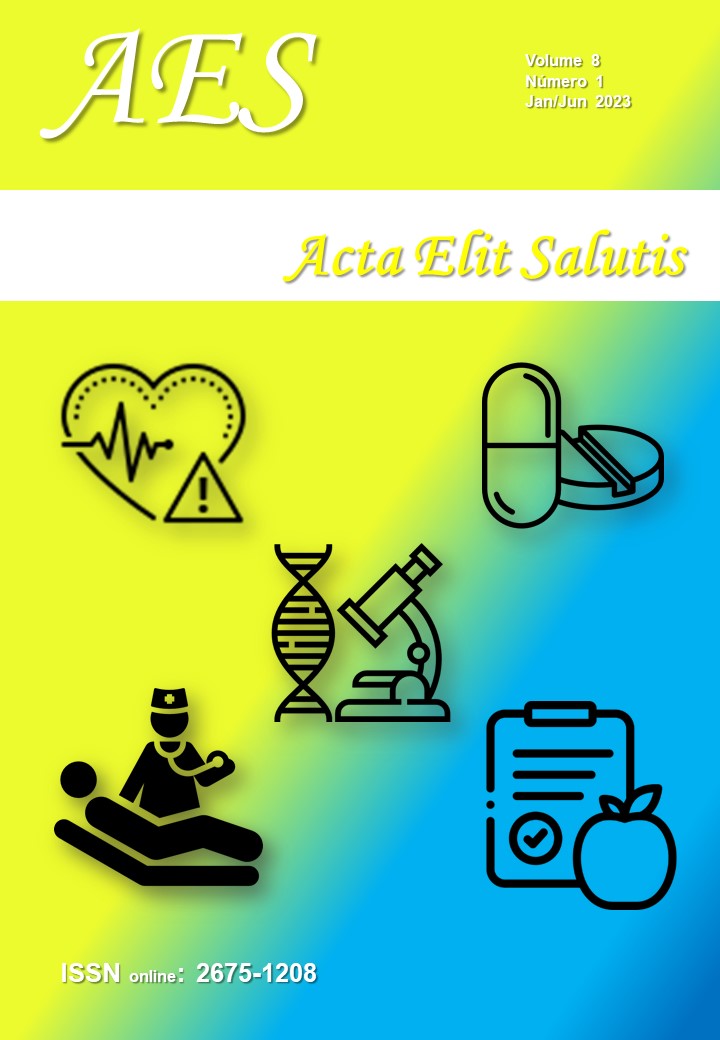Impact of hyperglycaemia and genetic polymorphism in diabetic patients affected by Covid-19
DOI:
https://doi.org/10.48075/aes.v8i1.28264Keywords:
Covid-19, Hyperglycemia, Genetic polymorphismAbstract
The world is facing one of the worst pandemics today, where around 4.7 million people lost their lives due to COVID-19. However, people with chronic diseases are more susceptible to worsening their clinical condition when affected by the new coronavirus. Patients with Diabetes mellitus (DM) promote a chronic inflammatory state and when affected by COVID-19, they are more prone to changes in the innate immune system, which can even trigger a storm of cytokines that is harmful to the host. Our objective was to address the impact of genetic polymorphism involving ACE 2 and clinical severity in people with hyperglycemia affected by COVID-19. This is a literature review with a qualitative approach, carried out on the PUBMED portal. The following search string was used: Polymorphism genetic, Diabetes, COVID-19, Hyperglycemia and Critical Care. Regarding polymorphism, it was observed that some variations may play a role in influencing the entry of the virus into the host body and others may be a useful tool to predict disease development and treatment against COVID-19.
Downloads
Published
How to Cite
Issue
Section
License
Copyright (c) 2023 Acta Elit Salutis

This work is licensed under a Creative Commons Attribution-NonCommercial-ShareAlike 4.0 International License.
Aviso de Direito Autoral Creative Commons
Política para Periódicos de Acesso Livre
Autores que publicam nesta revista concordam com os seguintes termos:
1. Autores mantém os direitos autorais e concedem à revista o direito de primeira publicação, com o trabalho simultaneamente licenciado sob a Licença Creative Commons Attribution que permite o compartilhamento do trabalho com reconhecimento da autoria e publicação inicial nesta revista.2. Autores têm autorização para assumir contratos adicionais separadamente, para distribuição não-exclusiva da versão do trabalho publicada nesta revista (ex.: publicar em repositório institucional ou como capítulo de livro), com reconhecimento de autoria e publicação inicial nesta revista.
3. Autores têm permissão e são estimulados a publicar e distribuir seu trabalho online (ex.: em repositórios institucionais ou na sua página pessoal) a qualquer ponto antes ou durante o processo editorial, já que isso pode gerar alterações produtivas, bem como aumentar o impacto e a citação do trabalho publicado (Veja O Efeito do Acesso Livre).
Licença Creative Commons
Esta obra está licenciada com uma Licença Creative Commons Atribuição-NãoComercial-CompartilhaIgual 4.0 Internacional, o que permite compartilhar, copiar, distribuir, exibir, reproduzir, a totalidade ou partes desde que não tenha objetivo comercial e sejam citados os autores e a fonte.





